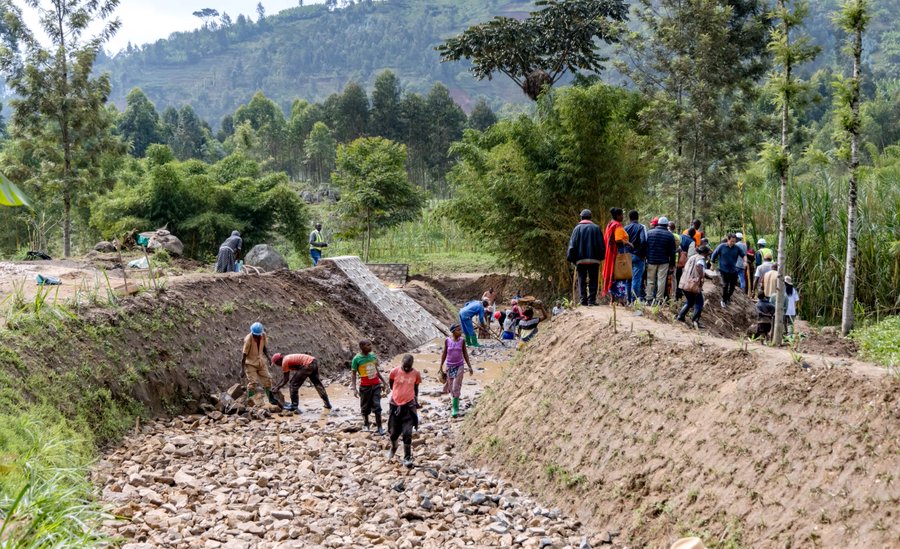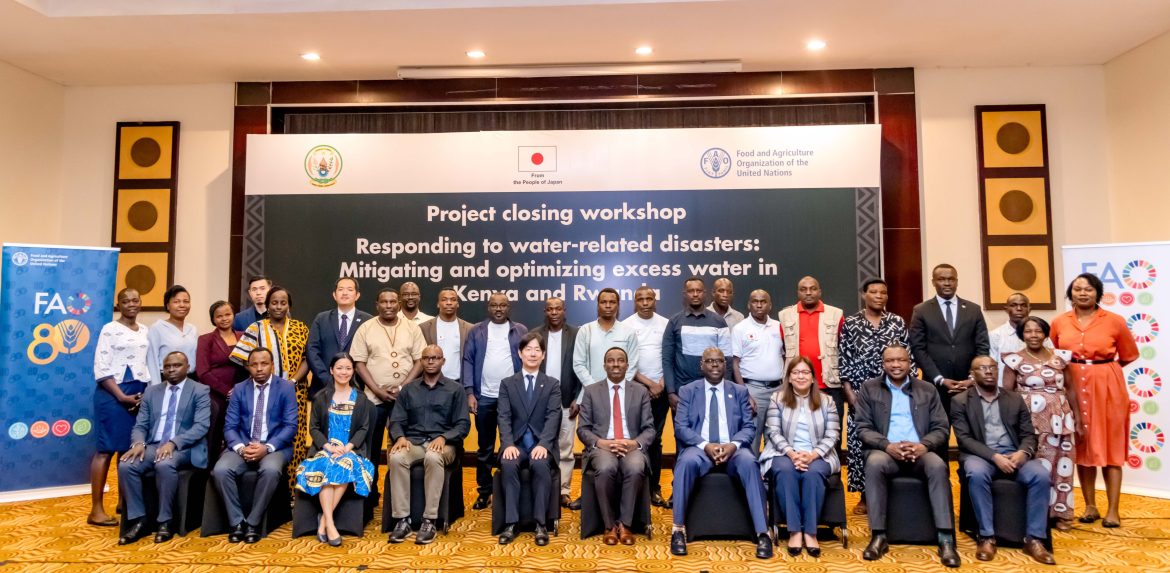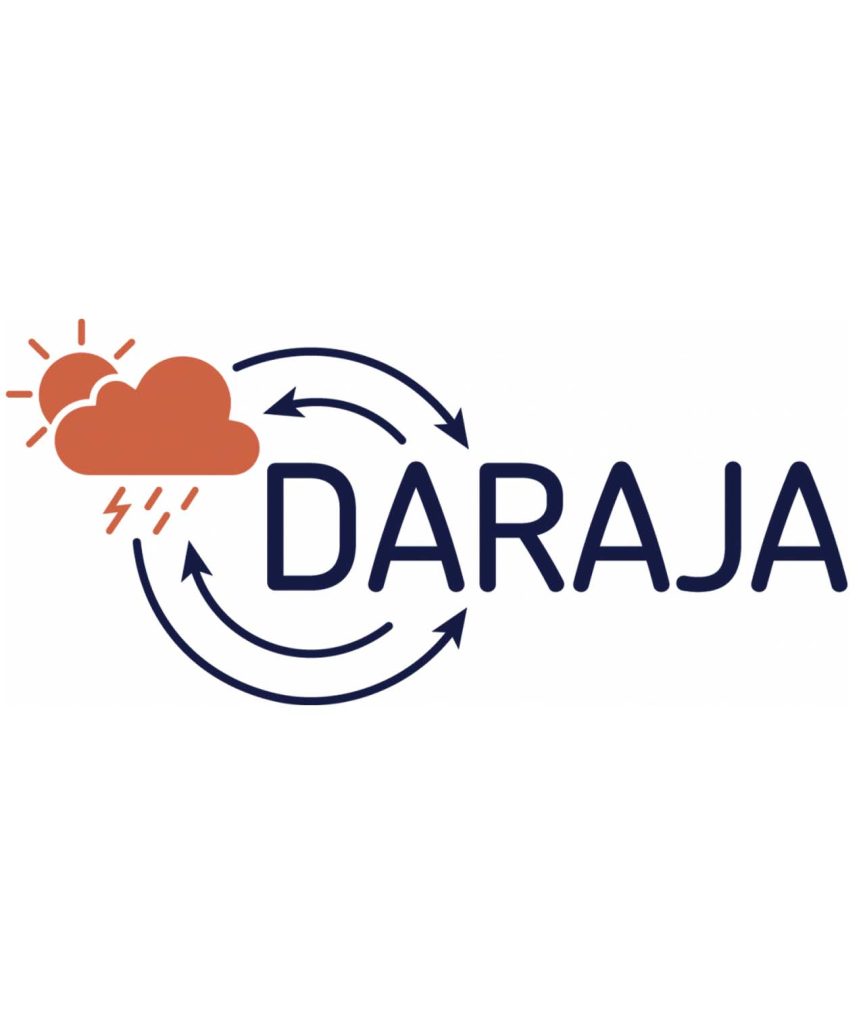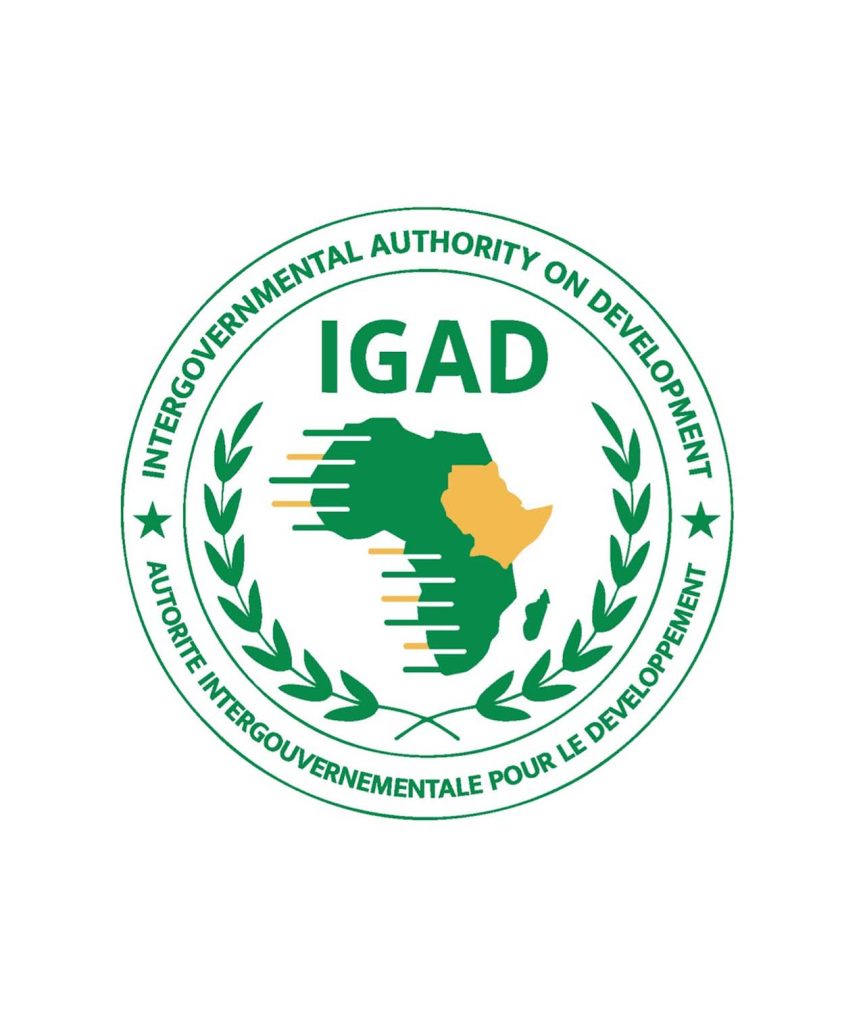22 July 2025, Kigali – The Food and Agriculture Organization of the United Nations (FAO) Subregional Office for Eastern Africa convened a closing workshop to mark the conclusion of its regional project addressing water-related disasters in Eastern Africa. The initiative, funded by the Government of Japan, benefited close to 6,500 households across Kenya and Rwanda.
The closing workshop, held in Kigali on 19 July 2025, brought together representatives from the Government of Rwanda, the Embassy of Japan, FAO experts, local authorities, implementing partners, and community members. The project focused on mitigating and optimizing excess water to enhance resilience in the agriculture sector in both countries.
In his opening remarks, Patrick Karangwa, Director General of Agriculture Modernization at the Ministry of Agriculture and Animal Resources in Rwanda, highlighted the project’s support for national efforts to manage water-related risks and strengthen community resilience.
H.E. Toru Sugio, Deputy Chief of Mission of Japan to the African Union, reaffirmed Japan’s commitment to supporting sustainable development and disaster resilience in Africa. “We are now facing the risks of climate change and global warming. This affects countless people, and there is no fighting against nature. Japan has learned from disasters such as earthquakes and typhoons and remains committed to supporting Africa’s resilience and prosperity,” he said.
In a written statement, Farayi Zimudzi, FAO Subregional Coordinator for Eastern Africa, noted the project’s transformative impact, stating that with timely and well-targeted actions, water, often regarded as a threat, can become a source of resilience and hope. She expressed appreciation for the support of the Government of Japan and reaffirmed FAO’s commitment to working hand in hand with communities to turn challenges into opportunities and build resilient agrifood systems.
The workshop followed two days of field visits to project sites in Rwanda’s Rutsiro and Burera Districts, where stakeholders observed rehabilitated flood control infrastructure, including canals, retention ponds, bridges, and an irrigation scheme. FAO project teams shared results, success stories and lessons learned. Discussions emphasized the importance of anticipatory action, local ownership, and integrated approaches to water-related disaster management.
Stakeholders called for the expansion of resilience-building initiatives across the region to strengthen sustainable livelihoods. They stressed the need for stronger partnerships at all levels to optimize excess water resources and build resilience food systems in response to climate shocks.

Delivering results on the ground
The project was launched in response to escalating climate threats in Eastern Africa. The region continues to face compounding shocks, with close to 63 million people across the seven IGAD member countries experiencing high levels of acute food insecurity in 2024. This crisis is driven by extreme weather events, economic pressures, and ongoing conflict, according to the 2024 IGAD Regional Focus of the Global Report on Food Crises.
In Kenya, activities in Migori County focused on constructing community water reservoirs, known as water pans, to store runoff that previously caused flooding and damage to farms, infrastructure and homes. The water pans hold 70,000 m³ of runoff and support 500 households, around 2,500 people, in irrigating over 40 hectares of land. To improve productivity, improved seed varieties were distributed. Women and youth entrepreneurs received grain threshers, business training, and motorbikes to extend service delivery to farmers.
In Rwanda, the project supported 5,775 households, benefitting 28,875 people in Burera and Rutsiro Districts. Key achievements included rehabilitating three kilometres of flood control canals, constructing bridges, retention ponds, a filtration chamber, a stilling basin, and a hillside irrigation scheme to support three hectares of farmland. Gullies were treated, and pedestrian access bridges were constructed to enhance connectivity. In addition, 52 local government officials, including staff from the Rwanda Agriculture and Animal Resources Development Board (RAB), received training on flood preparedness and integrated water management. A further 100 community members from both districts were trained in anticipatory actions, with a focus on non-engineering flood control measures.
As the workshop concluded, stakeholders reflected on the transformative outcomes of the initiative. “We deeply appreciate the support of the Government of Japan and reaffirm FAO’s commitment to continue working hand-in-hand with Governments and local communities to turn challenges into opportunities in order to build resilient agrifood systems,” said Farayi Zimudzi, FAO Subregional Coordinator for Eastern Africa.









